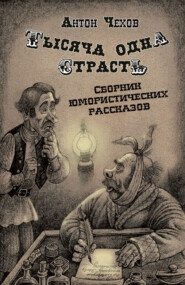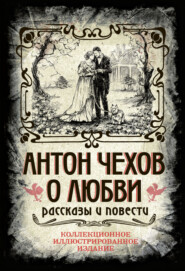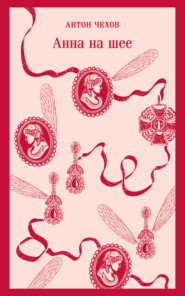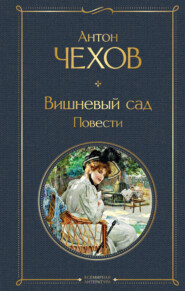По всем вопросам обращайтесь на: info@litportal.ru
(©) 2003-2025.
✖
The Lady with the Dog and Other Stories
Настройки чтения
Размер шрифта
Высота строк
Поля
And he never went to the Turkins' again.
V
Several more years have passed. Startsev has grown stouter still, has grown corpulent, breathes heavily, and already walks with his head thrown back. When stout and red in the face, he drives with his bells and his team of three horses, and Panteleimon, also stout and red in the face with his thick beefy neck, sits on the box, holding his arms stiffly out before him as though they were made of wood, and shouts to those he meets: "Keep to the ri-i-ight!" it is an impressive picture; one might think it was not a mortal, but some heathen deity in his chariot. He has an immense practice in the town, no time to breathe, and already has an estate and two houses in the town, and he is looking out for a third more profitable; and when at the Mutual Credit Bank he is told of a house that is for sale, he goes to the house without ceremony, and, marching through all the rooms, regardless of half-dressed women and children who gaze at him in amazement and alarm, he prods at the doors with his stick, and says:
"Is that the study? Is that a bedroom? And what's here?"
And as he does so he breathes heavily and wipes the sweat from his brow.
He has a great deal to do, but still he does not give up his work as district doctor; he is greedy for gain, and he tries to be in all places at once. At Dyalizh and in the town he is called simply "Ionitch": "Where is Ionitch off to?" or "Should not we call in Ionitch to a consultation?"
Probably because his throat is covered with rolls of fat, his voice has changed; it has become thin and sharp. His temper has changed, too: he has grown ill-humoured and irritable. When he sees his patients he is usually out of temper; he impatiently taps the floor with his stick, and shouts in his disagreeable voice:
"Be so good as to confine yourself to answering my questions! Don't talk so much!"
He is solitary. He leads a dreary life; nothing interests him.
During all the years he had lived at Dyalizh his love for Kitten had been his one joy, and probably his last. In the evenings he plays vint at the club, and then sits alone at a big table and has supper. Ivan, the oldest and most respectable of the waiters, serves him, hands him Lafitte No. 17, and every one at the club – the members of the committee, the cook and waiters – know what he likes and what he doesn't like and do their very utmost to satisfy him, or else he is sure to fly into a rage and bang on the floor with his stick.
As he eats his supper, he turns round from time to time and puts in his spoke in some conversation:
"What are you talking about? Eh? Whom?"
And when at a neighbouring table there is talk of the Turkins, he asks:
"What Turkins are you speaking of? Do you mean the people whose daughter plays on the piano?"
That is all that can be said about him.
And the Turkins? Ivan Petrovitch has grown no older; he is not changed in the least, and still makes jokes and tells anecdotes as of old. Vera Iosifovna still reads her novels aloud to her visitors with eagerness and touching simplicity. And Kitten plays the piano for four hours every day. She has grown visibly older, is constantly ailing, and every autumn goes to the Crimea with her mother. When Ivan Petrovitch sees them off at the station, he wipes his tears as the train starts, and shouts:
"Good-bye, if you please."
And he waves his handkerchief.
THE HEAD OF THE FAMILY
IT is, as a rule, after losing heavily at cards or after a drinking-bout when an attack of dyspepsia is setting in that Stepan Stepanitch Zhilin wakes up in an exceptionally gloomy frame of mind. He looks sour, rumpled, and dishevelled; there is an expression of displeasure on his grey face, as though he were offended or disgusted by something. He dresses slowly, sips his Vichy water deliberately, and begins walking about the rooms.
"I should like to know what b-b-beast comes in here and does not shut the door!" he grumbles angrily, wrapping his dressing-gown about him and spitting loudly. "Take away that paper! Why is it lying about here? We keep twenty servants, and the place is more untidy than a pot-house. Who was that ringing? Who the devil is that?"
"That's Anfissa, the midwife who brought our Fedya into the world," answers his wife.
"Always hanging about … these cadging toadies!"
"There's no making you out, Stepan Stepanitch. You asked her yourself, and now you scold."
"I am not scolding; I am speaking. You might find something to do, my dear, instead of sitting with your hands in your lap trying to pick a quarrel. Upon my word, women are beyond my comprehension! Beyond my comprehension! How can they waste whole days doing nothing? A man works like an ox, like a b-beast, while his wife, the partner of his life, sits like a pretty doll, sits and does nothing but watch for an opportunity to quarrel with her husband by way of diversion. It's time to drop these schoolgirlish ways, my dear. You are not a schoolgirl, not a young lady; you are a wife and mother! You turn away? Aha! It's not agreeable to listen to the bitter truth!"
"It's strange that you only speak the bitter truth when your liver is out of order."
"That's right; get up a scene."
"Have you been out late? Or playing cards?"
"What if I have? Is that anybody's business? Am I obliged to give an account of my doings to any one? It's my own money I lose, I suppose? What I spend as well as what is spent in this house belongs to me – me. Do you hear? To me!"
And so on, all in the same style. But at no other time is Stepan Stepanitch so reasonable, virtuous, stern or just as at dinner, when all his household are sitting about him. It usually begins with the soup. After swallowing the first spoonful Zhilin suddenly frowns and puts down his spoon.
"Damn it all!" he mutters; "I shall have to dine at a restaurant, I suppose."
"What's wrong?" asks his wife anxiously. "Isn't the soup good?"
"One must have the taste of a pig to eat hogwash like that! There's too much salt in it; it smells of dirty rags … more like bugs than onions… It's simply revolting, Anfissa Ivanovna," he says, addressing the midwife. "Every day I give no end of money for housekeeping… I deny myself everything, and this is what they provide for my dinner! I suppose they want me to give up the office and go into the kitchen to do the cooking myself."
"The soup is very good to-day," the governess ventures timidly.
"Oh, you think so?" says Zhilin, looking at her angrily from under his eyelids. "Every one to his taste, of course. It must be confessed our tastes are very different, Varvara Vassilyevna. You, for instance, are satisfied with the behaviour of this boy" (Zhilin with a tragic gesture points to his son Fedya); "you are delighted with him, while I … I am disgusted. Yes!"
Fedya, a boy of seven with a pale, sickly face, leaves off eating and drops his eyes. His face grows paler still.
"Yes, you are delighted, and I am disgusted. Which of us is right, I cannot say, but I venture to think as his father, I know my own son better than you do. Look how he is sitting! Is that the way decently brought up children sit? Sit properly."
Fedya tilts his chin up, cranes his neck, and fancies that he is holding himself better. Tears come into his eyes.
"Eat your dinner! Hold your spoon properly! You wait. I'll show you, you horrid boy! Don't dare to whimper! Look straight at me!"
Fedya tries to look straight at him, but his face is quivering and his eyes fill with tears.
"A-ah!.. you cry? You are naughty and then you cry? Go and stand in the corner, you beast!"
"But … let him have his dinner first," his wife intervenes.
"No dinner for him! Such bla … such rascals don't deserve dinner!"
Fedya, wincing and quivering all over, creeps down from his chair and goes into the corner.
"You won't get off with that!" his parent persists. "If nobody else cares to look after your bringing up, so be it; I must begin… I won't let you be naughty and cry at dinner, my lad! Idiot! You must do your duty! Do you understand? Do your duty! Your father works and you must work, too! No one must eat the bread of idleness! You must be a man! A m-man!"
"For God's sake, leave off," says his wife in French. "Don't nag at us before outsiders, at least… The old woman is all ears; and now, thanks to her, all the town will hear of it."
"I am not afraid of outsiders," answers Zhilin in Russian. "Anfissa Ivanovna sees that I am speaking the truth. Why, do you think I ought to be pleased with the boy? Do you know what he costs me? Do you know, you nasty boy, what you cost me? Or do you imagine that I coin money, that I get it for nothing? Don't howl! Hold your tongue! Do you hear what I say? Do you want me to whip you, you young ruffian?"
Fedya wails aloud and begins to sob.
"This is insufferable," says his mother, getting up from the table and flinging down her dinner-napkin. "You never let us have dinner in peace! Your bread sticks in my throat."
And putting her handkerchief to her eyes, she walks out of the dining-room.

















